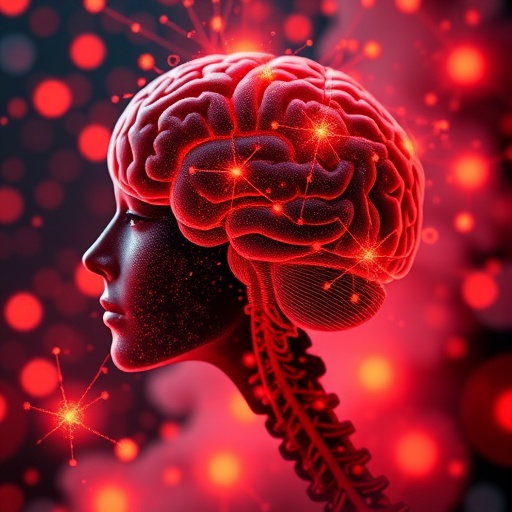
view more
Credit: The University of Hong Kong
Arousal – how alert or excited one feel – is a basic part of emotions, along with whether those emotions are positive or negative. Scientists still don’t fully understand how the brain creates these feelings of arousal, or if the brain uses the same or different systems for emotional arousal compared to states such as being awake or having a bodily reaction.
A recent study led by Professor Benjamin Becker from the Department of Psychology at The University of Hong Kong (HKU) uncovers a brain signature that reveals how emotional intensity is consciously experienced – and whether this experience is distinct from automatic bodily reactions.
Using a powerful combination of AI-driven modelling, advanced brain imaging, and close-to-real-life experimental paradigms, the team was able to uncover a brain signature that precisely measures emotional intensity (arousal) across diverse situations ranging from seeing a loved one to a horror movie. Notably, the team was able to disentangle the conscious emotional experience from the automatic physiological responses such as sweating ot heart racing.
The findings touch on a core debate that has fascinated philosophers and psychologists for over 150 years, debating whether conscious feelings and bodily reactions can be separated. Such insights could drive the next generation of emotionally intelligent AI systems by indicating that conscious emotional experience can be distentangled from bodily aspects.
Beyond the theoretical implications, this discovery opens new avenues for:
- Developing and designing emotionally intelligent AI systems
- Advancing brain-computer interfaces and affective computing, and
- Designing more precise interventions for emotional disorders such as anxiety and depression.
In short, this research offers a better, more precise way to understand how our brains create emotional arousal, and it could help with future studies and applications in understanding emotions.
The research was recently published in Nature Communications in an article titled “A neurofunctional signature of affective arousal generalizes across valence domains and distinguishes subjective experience from autonomic reactivity”.
Media enquiries:
Professor Benjamin Becker, Department of Psychology, HKU (Tel: 3917 5097; Email: bbecker@hku.hk)
Miss Michelle Tsang (Cantonese inquiries), Department of Psychology, HKU (Tel: 3917 7126; Email: tsanghlm@connect.hku.hk)
Miss Kay Teng (Mandarin inquiries), Department of Psychology, HKU (Tel: 3917 7126; Email: yuekayteng@connect.hku.hk)
Journal
Nature Communications
Method of Research
Observational study
Subject of Research
Not applicable
Article Title
A neurofunctional signature of affective arousal generalizes across valence domains and distinguishes subjective experience from autonomic reactivity
Article Publication Date
15-Jul-2025
Jaymee Ng
The University of Hong Kong
ngjaymee@hku.hk
Journal
Nature Communications
Method of Research
Observational study
Subject of Research
Not applicable
Article Title
A neurofunctional signature of affective arousal generalizes across valence domains and distinguishes subjective experience from autonomic reactivity
Article Publication Date
15-Jul-2025
Keywords
bu içeriği en az 2000 kelime olacak şekilde ve alt başlıklar ve madde içermiyecek şekilde ünlü bir science magazine için İngilizce olarak yeniden yaz. Teknik açıklamalar içersin ve viral olacak şekilde İngilizce yaz. Haber dışında başka bir şey içermesin. Haber içerisinde en az 12 paragraf ve her bir paragrafta da en az 50 kelime olsun. Cevapta sadece haber olsun. Ayrıca haberi yazdıktan sonra içerikten yararlanarak aşağıdaki başlıkların bilgisi var ise haberin altında doldur. Eğer yoksa bilgisi ilgili kısmı yazma.:
Subject of Research:
Article Title:
News Publication Date:
Web References:
References:
Image Credits:
Keywords



